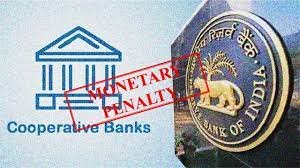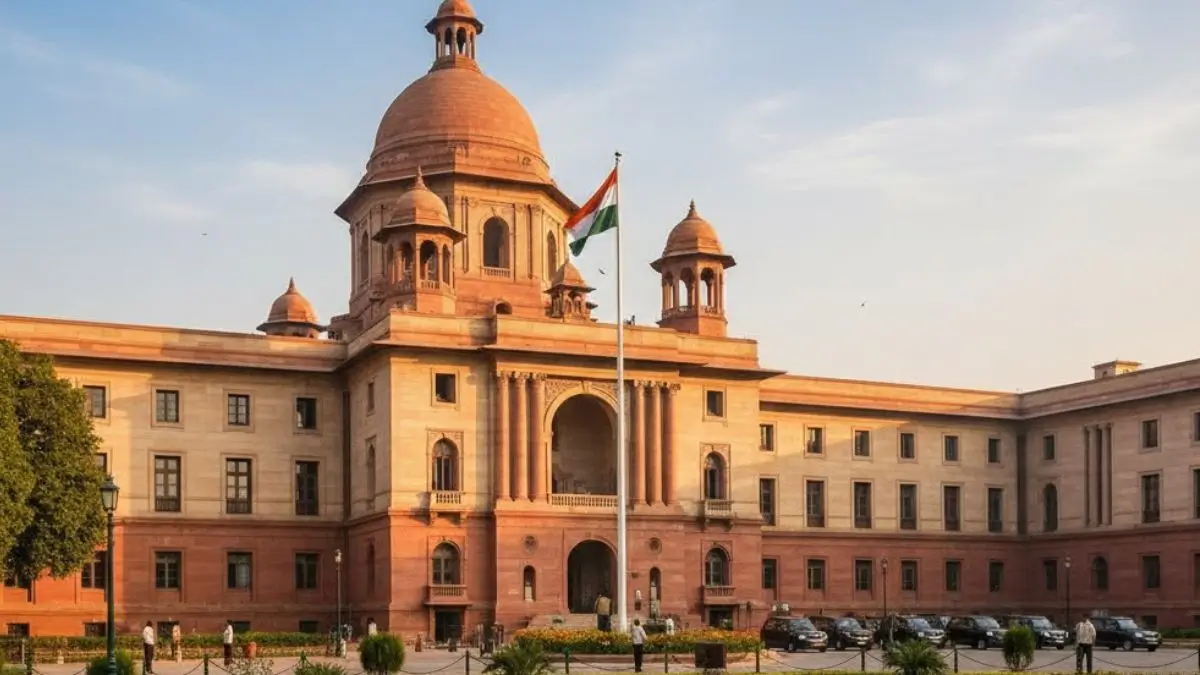RBI Imposes Monetary Penalty on Four Co-operative Banks & 1 HFC
The Reserve Bank of India (RBI) recently imposed monetary penalties on four cooperative banks and one housing finance company. This development has significant implications for various government exams, including those aspiring for positions in teaching, police, banking, railways, defense, and civil services, such as PSCS to IAS.

Why this News is Important:
1. Ensuring Banking Sector Integrity: The RBI’s action to impose monetary penalties highlights the central bank’s commitment to maintaining the integrity of the banking sector. For aspirants aiming for positions like banking officers and probationary officers, understanding the regulatory functions of the RBI is crucial.
2. Regulatory Compliance Awareness: This news underscores the importance of cooperative banks and housing finance companies adhering to regulatory guidelines. It emphasizes the need for candidates preparing for government exams, especially those targeting banking and financial positions, to have a deep understanding of financial regulations.
Historical Context:
In the context of this news, it’s important to understand that the RBI has been actively regulating and supervising the cooperative banking sector in India for several years. Cooperative banks play a crucial role in financial intermediation, particularly at the grassroots level. However, instances of non-compliance with regulations or financial irregularities have prompted the RBI to take corrective actions.
The cooperative banking sector has faced scrutiny in the past, and the recent penalties are part of a broader effort by the RBI to maintain transparency and integrity in the financial sector.
Key Takeaways from This News:
| Serial Number | Key Takeaway |
|---|---|
| 1 | RBI imposed monetary penalties on four cooperative banks and one housing finance company. |
| 2 | This action highlights the importance of regulatory compliance in the banking and financial sector. |
| 3 | Aspirants for various government positions should be aware of the role of the RBI in maintaining financial stability. |
| 4 | Cooperative banks are crucial for financial intermediation, especially in rural areas. |
| 5 | Knowledge of financial laws and regulations is essential for positions related to law enforcement and national security. |
Important FAQs for Students from this News
Q: What does the RBI’s imposition of monetary penalties on cooperative banks signify?
A: The imposition of monetary penalties by the RBI indicates regulatory action taken against banks or financial institutions that have violated rules, demonstrating the RBI’s commitment to financial sector integrity.
Q: Why is regulatory compliance essential for cooperative banks and housing finance companies?
A: Regulatory compliance is vital to ensure the stability and transparency of the financial sector. Failure to comply with regulations can result in penalties and legal actions.
Q: How does this news relate to government exams, particularly for positions in banking and civil services?
A: Aspirants for various government positions, including banking officers and civil service roles, need to understand the regulatory functions of the RBI and the importance of legal and regulatory knowledge in their respective domains.
Q: What role do cooperative banks play in the Indian financial system?
A: Cooperative banks are crucial for financial intermediation, especially in rural areas, and they contribute to financial inclusion and grassroots banking.
Q: Where can I find more details about the penalties imposed by the RBI and related financial regulations?
A: Candidates can refer to the official RBI website and relevant financial regulations for specific details about the penalties and regulatory guidelines.
Some Important Current Affairs Links

















